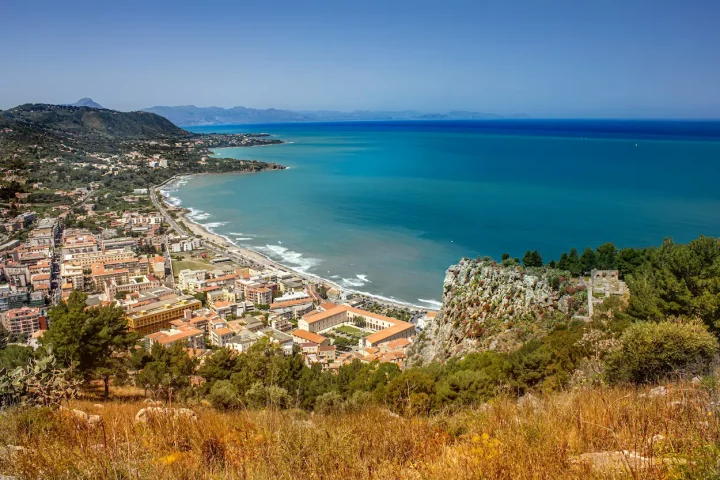The concept of a “dual Italian passport” is directly linked to obtaining Italian citizenship and the numerous benefits that come with it. For many, acquiring a second passport is not just about the convenience of travel but also about embracing a new cultural identity and accessing a broader range of opportunities.
This guide will explore what a dual Italian passport is, its benefits, and the steps to obtain one.
What is a dual Italian passport?
A dual Italian passport refers to the possession of an Italian passport by individuals who also hold citizenship of another country. This means that these individuals are recognized as citizens by both Italy and their other country of citizenship.
The Italian government grants this passport to those who have successfully obtained Italian citizenship, allowing them to enjoy the rights and privileges of being an Italian citizen while retaining their original nationality.
Benefits of a dual passport
Having a dual Italian passport comes with several significant advantages:
Freedom to travel and reside in the EU
One of the most notable benefits is the ability to travel, live, and work freely within the European Union (EU). This opens up a vast array of opportunities for education, employment, and lifestyle choices across 27 member countries.
Access to services
Dual citizens can access healthcare, education, and other social services in Italy and other EU countries. This can be particularly beneficial for those seeking high-quality healthcare and education systems.
Job opportunities
Holding an Italian passport can make it easier to find employment in the EU, as employers often prefer or require EU citizenship for certain positions. This can significantly enhance career prospects and professional growth.
Cultural and social integration
Being a dual citizen allows individuals to fully integrate into Italian society, participate in cultural events, and enjoy the rich heritage and traditions of Italy.
Take advantage of specialized assistance to secure your passport for a borderless future.
How to obtain Italian citizenship to get a dual passport
There are three main pathways to obtaining Italian citizenship, each with its own set of requirements:
Jus sanguinis (by descent)
This is the most common route for individuals with Italian ancestry. If you have an Italian parent or grandparent born in Italy, you may be eligible for citizenship. Alternatively, eligibility may also apply if your Italian parent—not grandparent—lived continuously in Italy for at least two years.
To qualify, you must demonstrate that your Italian ancestor held exclusive Italian citizenship at the time of their death.
Naturalization by residency
Non-EU citizens can apply for Italian citizenship through naturalization after legally residing in Italy for a certain period, typically 10 years. This process includes demonstrating proficiency in the Italian language and integrating into Italian society.
Marriage
Spouses of Italian citizens can apply for citizenship after being married for a certain period, usually two years if residing in Italy or three years if living abroad.
Process to apply for the Italian passport
Once you have obtained Italian citizenship, the process to apply for an Italian passport involves several steps:
- Gather necessary documents: you will need to provide proof of Italian citizenship, such as a certificate of citizenship or a naturalization certificate, along with identification documents like a birth certificate and a valid ID.
- Submit application: applications can be submitted at the local passport office in Italy or at an Italian consulate if you are residing abroad. You will need to fill out the application form and pay the required fees.
- Biometric data: you will be required to provide biometric data, including fingerprints and a photograph, as part of the application process.
- Processing time: the processing time for an Italian passport can vary, but it typically takes a few weeks to a few months.
Legal requirements and considerations
Maintaining a dual passport comes with certain legal requirements and considerations:
- Legal obligations: dual citizens must comply with the laws and regulations of both countries. This includes tax obligations and other legal responsibilities.
- Travel restrictions: some countries may have restrictions or specific requirements for dual citizens. It is important to be aware of these when traveling.
- Loss of citizenship: in some cases, acquiring a second citizenship may result in the loss of your original citizenship, depending on the laws of your home country. It is essential to understand the implications before proceeding. Italy, on the other hand, allows dual citizenship.
Practical advantages of a dual passport
A dual passport can significantly enhance your quality of life in various ways:
- International travel: with an Italian passport, you can travel to many countries without the need for a visa, making international travel more convenient and less time-consuming.
- Flexibility in residency: dual citizenship offers greater flexibility in choosing where to live, allowing you to move between countries with ease and take advantage of different living conditions and opportunities.
- Enhanced living experience: experiencing life in different countries can broaden your horizons, expose you to new cultures, and provide a richer, more diverse life experience.
Obtaining Italian citizenship and, consequently, a dual passport, offers significant benefits, from enhanced travel freedom to better job opportunities and access to services.
If you have Italian ancestry or meet the requirements for naturalization, it is worth considering this process to take full advantage of the opportunities it provides. For those interested in pursuing Italian citizenship, io.citizen can assist you throughout the entire process, ensuring a smooth and successful application.
Embark on this journey to embrace your Italian heritage and enjoy the myriad benefits of a dual Italian passport!
Take advantage of specialized assistance to secure your passport for a borderless future.






